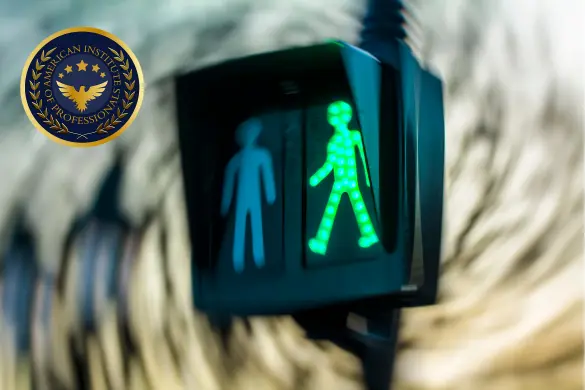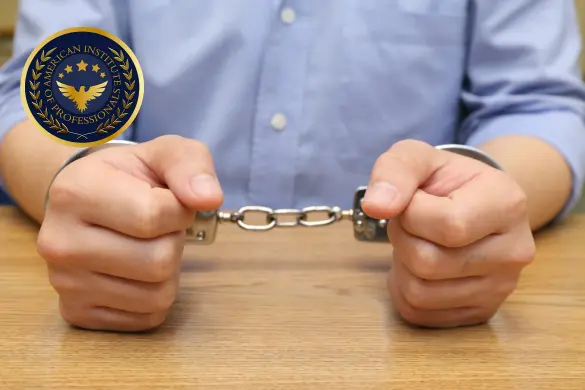Understanding a criminal case’s stages is vital in the intricate legal system landscape. Each phase carries complexities and implications, from arrest to trial and potential appeals. Throughout this journey, the presence of a seasoned criminal law attorney is indispensable.
Their expertise navigates the intricacies of the legal process and serves as a steadfast advocate for the accused. Join us as we delve into the various stages of a criminal case and explore the pivotal role a criminal law attorney plays in securing the best possible outcome for their clients.
Seeking legal assistance?

Stage 1: Arrest and Booking
The initial stage of a criminal case, arrest, and booking, sets the foundation for the legal journey ahead. During this critical phase, law enforcement officers apprehend individuals suspected of committing criminal conduct and initiate the booking process.
Understanding one’s rights during arrest is paramount, as individuals have the right to remain silent and seek legal counsel. Notably, the defendant must face trial within ten days of the hearing. If not, exceptional circumstances must exist, or the defendant will be freed at the request of the defendant or court.
However, the most crucial step during this stage is the early engagement of legal counsel. Contacting a seasoned criminal law attorney promptly can provide invaluable guidance and support, ensuring that the accused’s rights are protected and laying the groundwork for a custom-tailored defense strategy.
Stage 2: Arraignment
As the journey through the legal system progresses, the second stage, arraignment, emerges as a pivotal point in a criminal justice case. Arraignment, often the defendant’s first appearance in court after arrest, formally introduces the potential charges against them.
At this hearing, presided over by a judge, the defendant is informed of the charges and their rights within the judicial process. The district attorney represents the prosecution, and if already retained, the defendant’s criminal defense lawyer is present during this crucial proceeding.
Once acquainted with the potential charges and their rights, the criminal defendant is asked to enter a plea, typically either guilty, not guilty, or no contest. Amidst this intricate process, the role of the defense attorney is paramount.
Beyond advising the accused on their plea, the criminal defense lawyer is a steadfast advocate who invests considerable time in understanding the intricacies of the case and the potential severe penalties. Criminal lawyers offer legal services and strategic guidance to navigate the complexities of the arraignment hearing and beyond.
Stage 3: Pretrial Proceedings
Navigating the intricacies of criminal law in Florida involves traversing through various pretrial proceedings, each playing a crucial role in shaping the case’s trajectory. These proceedings encompass a range of essential steps, commencing with the discovery process.
The discovery phase involves the exchange of relevant evidence between the prosecution and the defense, laying the groundwork for trial preparation. Considering the potential sentences is also crucial during this stage, as they greatly impact the defendant’s future.
Following this, plea negotiations offer an opportunity for both sides to explore potential resolutions outside the courtroom. Concurrently, motion hearings are pivotal moments where legal issues pertinent to the case are addressed before a judge. For instance, defense counsel might file a motion to suppress evidence obtained unlawfully under Florida law.
Additionally, bail hearings and bond issues are resolved during trial preparation, determining the criminal defendant’s pretrial detention status. A bail bond guarantees the court that the arrested will appear at all scheduled court dates.
Stage 4: Trial
Embarking on the trial stage in a criminal case, the pursuit of justice climaxes through a series of meticulously orchestrated proceedings. Throughout this stage, a custom-tailored defense strategy is essential to navigate the complexities of the legal battlefield. Key components of the criminal trial stage include:
- Jury selection: A critical process involving the selection of 6 jurors who will listen to both sides and ultimately decide the case.
- Opening statements: A preliminary overview of each party’s case, setting the stage for the evidence and arguments to follow.
- Presentation of evidence: The introduction and examination of evidence by both the prosecution and defense to support their respective positions.
- Examination of witnesses: Interrogation of witnesses by both sides to elicit testimony and challenge credibility.
- Closing arguments: Final summations by each party, reinforcing their case and urging the jury to render a verdict in their favor.
- Jury decision: After hearing all evidence and arguments, the jury retreats to deliberate and ultimately reach a verdict based on the facts presented, which may lead to additional penalties.
Stage 5: Post-Trial Motions and Appeals
As a criminal case progresses beyond the jury trial stage, attention turns to post-trial motions and appeals. Various outcomes after trial may arise, prompting the potential filing of post-trial motions. These motions can be based on grounds such as legal errors or newly discovered evidence.
Addressing post-trial issues requires thorough legal analysis and strategic planning to navigate the potential challenges effectively. Additionally, individuals found guilty possess the right to appeal their conviction at trial, initiating a formal process by filing a notice within a specified deadline.
The Role of A Criminal Defense Attorney
Understanding the pivotal role of a criminal law attorney is essential for anyone navigating the legal complexities of a criminal case. Experienced attorneys serve as unwavering advocates, providing crucial legal representation and guidance at every process stage. Key responsibilities of a criminal attorney include:
- Advocating for the accused or innocent clients throughout every legal process, including minimizing the risk of jail time.
- Providing expert legal advice and representation protects the accused’s rights and explores potential defenses, thereby mitigating the risk of severe penalties.
- Conduct criminal investigations and gather evidence to build a robust defense legal strategy.
- Developing and executing a custom-tailored defense strategy tailored to the case’s specifics.
- Negotiate with prosecutors to secure favorable outcomes after trial or plea deals when appropriate.
- Representing the accused in criminal court proceedings, advocating zealously for their best interests.
Navigate the Complexities of Criminal Cases with Expert Guidance
In navigating the complexities of a criminal case, understanding the stages involved is essential for individuals seeking justice. Each phase presents unique challenges and opportunities, from arrest and arraignment to trial and potential appeals. Throughout this journey, the presence of a skilled criminal defense attorney can make all the difference.
Their extensive experience, advocacy, and strategic guidance are invaluable assets in ensuring a fair legal process and securing the best possible outcome for the accused. Contact a trusted criminal law attorney for assistance and representation if you or someone you know is facing criminal charges.





